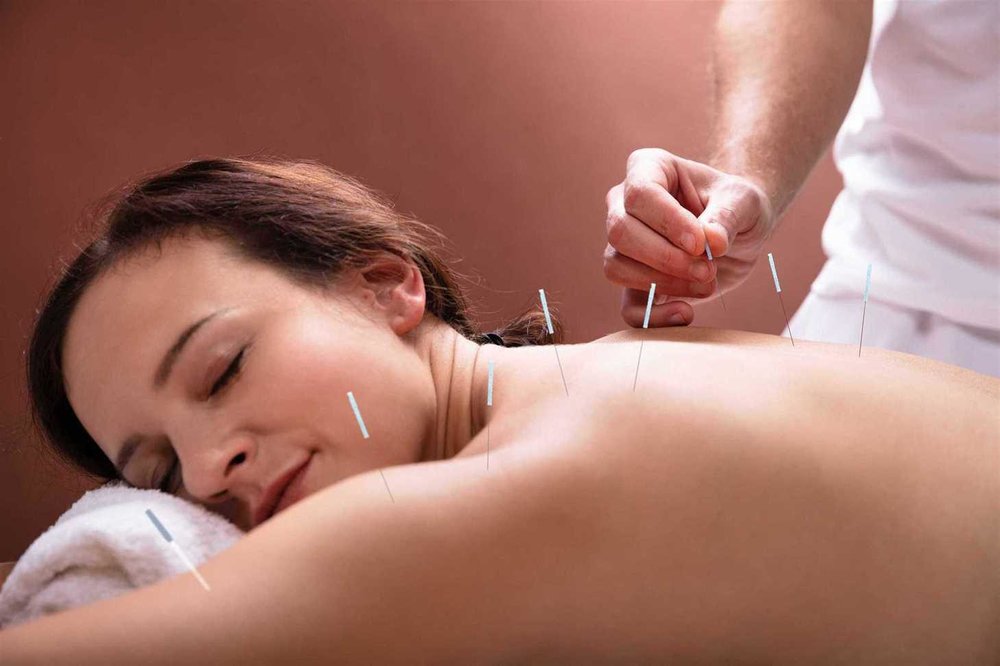How Acupuncture Can Help Ease the Grieving Process
Every year, humanity grows a little older, and, we hope, a little wiser. Concepts that were once seen as monoliths are revealed to be complex spectrums with a number of moving parts, a little different for every person. There’s wisdom in treading cautiously when describing a singular “grieving process”. You’ve likely heard of the 5 Stages of Grief - as it turns out, and as many folks who have experienced loss know, it’s not quite so simple. There isn’t evidence that most people go through all five stages, or that they go through them in any particular order - grief and emotions are rarely so simple.
The preamble above is important because we’re going to discuss the applications of acupuncture for easing the grieving process. There are a lot of moving parts here, so before we delve into the studies, let’s break it down. Acupuncture doesn’t necessarily work for everyone, and your belief that it will work seems to have an impact on its success. That compounded with the non-linear, difficult-to-predict nature of grief means that acupuncture won’t definitely ease the grieving process. For some, however, it might be quite helpful - now we can delve into why.
The Science
Studies on the mental effects of acupuncture frequently focus on depression. As we mentioned above, the grieving process doesn’t necessarily involve depression, but those of you who are coping with strong negative emotions during the grieving process may benefit from acupuncture. A metastudy revealed that there is “low-quality evidence suggesting that acupuncture (manual and electro-) may moderately reduce the severity of depression by (the) end of treatment”. For those not well-versed in reading science journals, this means that it seems like acupuncture can reduce depression, but that the studies that have been done are lacking in certain ways - they may not be large enough, there may be flaws in their methodology, there may have been a lack of follow-up studies or any number of other problems. Generally, when you see low-quality studies with moderate effects, it should prompt researchers to do more studies to confirm the effectiveness of the treatment.
One of the advantages of acupuncture over certain other treatments is that it’s relatively low-risk; so long as you find a practitioner who is well-qualified, there’s a very low chance of complications, even if the treatment doesn’t end up being right for you. Those looking to ease the grieving process who think acupuncture might help can try it with few worries - a good thing if you’re already feeling compounded anxiety because of grief.
Other Methods
One of the reasons acupuncture is so appealing is that certain alternatives are unacceptable to some folks. Those of you who aren’t interested in taking antidepressants may be inclined to use acupuncture (please know that this isn’t medical advice - talk to your medical team). There’s at least one study that presents evidence suggesting that acupuncture is as effective as a particular antidepressant (though the study isn’t perfect). Acupuncture can be used in combination with a variety of other techniques in order to ease your grief - you might also go to a talk therapist, engage in mindfulness meditation, or do any variety of other things. This, again, is all dependent upon your grieving process. Acupuncture’s low risk makes it appropriate to use in all kinds of contexts, though you should keep a constant line of open communication with your health care providers in order to avoid any possible complications.
Routine
Some folks find comfort in routine. You may already be getting acupuncture for an unrelated cause - pain, fatigue, or any number of other things acupuncturists can treat. Those of you who already have an acupuncture routine that they find useful might opt to keep up this routine and change the course of treatment a bit. There are those who find their routines start to slip as they grieve. Remind yourself that everyone’s grieving process is different and talk to your medical professionals about what you’re going through to make rescheduling easier.
Something New
This is the opposite of the comfort-in-routine feeling - some who grieve will feel they need to get up and do something in order to help them cope. For these folks, acupuncture might be a great idea, efficacity aside. Starting a new routine, developing a new skill, or experiencing something different can be incredibly helpful. Again, because of acupuncture’s low risk, you can stop it if you feel like it’s not for you.
Spirituality & History
Acupuncture is a subset of Traditional Chinese Medicine (TCM). Western medicine hasn’t confirmed the ideas contained within TCM, and that means it’s written off by some folks. That said, there’s a rich tradition and history in TCM, dating back millennia. Depending on how you grieve, you might find comfort in this history - you can talk about how these concepts were developed, the stories and contexts in which they were used, and the spiritual elements of TCM. Grief can often have physical, emotional, and spiritual elements, and treatments that are grounded in these same elements appeal to some people.
Conclusion
Acupuncture can help ease the grieving process in a number of different ways. There’s some science that supports the idea that acupuncture can help with depression, and we hope to see more studies done in the near future. Acupuncture can help you establish a routine, which some people find incredibly helpful for grieving. It can also be a new step you take to change your thinking, your environment, or your habits, which can also be helpful. There are spiritual and traditional elements to acupuncture that can appeal to a wide subset of people. Those of you who find yourselves in any of these categories might decide it’s worth a try.
Here at Alterna Cremation, we provide more than just cremation services in Winnipeg. We’ll be here for you during the grieving process, and we’ll provide you with as many resources as possible during what can be a trying and confusing time.






Comments